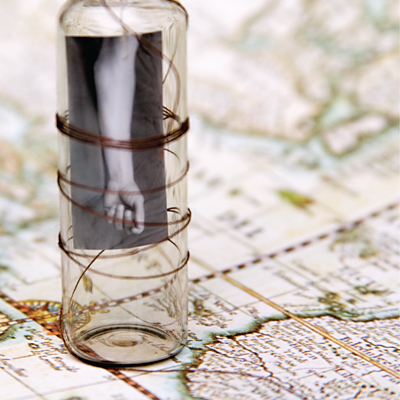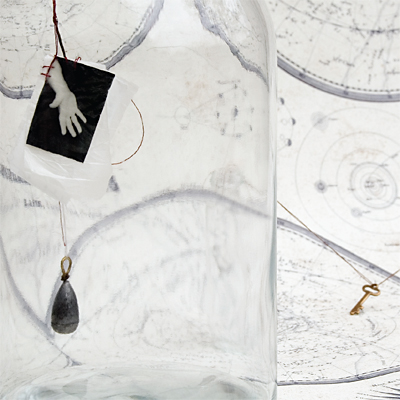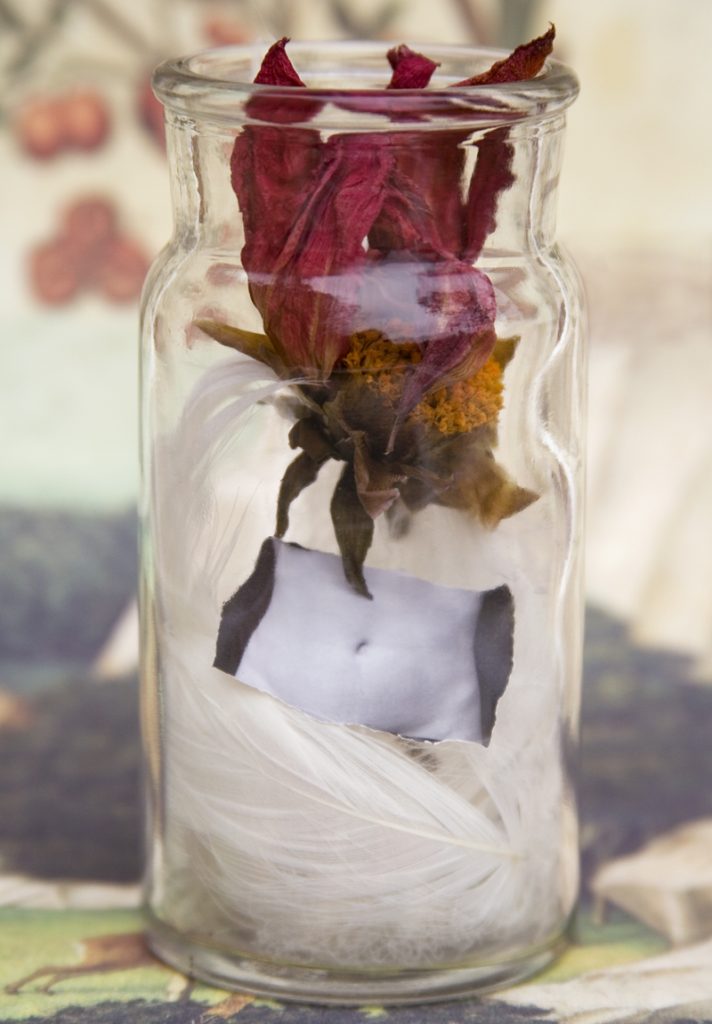Typically, the first things that come to mind when we encounter the fifth Zen precept are drugs and alcohol, particularly alcohol, which in excess can make us drunk, inebriated or intoxicated. There are many words for it. Originally, this precept was about refraining from buying or selling intoxicants, when selling was considered even worse than imbibing. And it’s no wonder, since the earliest meaning of the transitive verb to intoxicate in English is “to smear with poison”—which is what I’d be doing to others were I to sell or give them intoxicants. On the other hand, we do say that the fragrance of certain roses is “intoxicating.” But what is intoxication really? Getting high? What exactly does that mean?
Before we get into the meaning of intoxication, it would be good to look at how the fifth precept is treated in the two versions of the Ten Grave Precepts considered foundational in Zen. Bodhidharma says of number five: “The ten dharma worlds are the body and mind. In the sphere of the originally pure dharma, not being ignorant is called the precept of refraining from using intoxicants.” Eihei Dogen says: “Not being ignorant. It has never been: don’t be defiled. It is indeed the great clarity.” Some other translations include “Not giving rise to delusions is called not giving or taking drugs.… Drugs are not brought in yet, don’t let them invade, this is the great light” (Aitken Roshi); “Not allowing the mind to become dark is called the precept of refraining from using intoxicants” (Daido Roshi); “Where nothing can be brought in, everything is inviolable, this is exactly the great brightness” (Reb Anderson).
As the various translations indicate, intoxication has something to do with ignorance, defilement, delusion, darkness, and a clouding over of light or clarity. But is being intoxicated by the fragrance of a rose an example of delusion? If I hold the rose up to your nose, am I smearing you with poison? Surely not! The poet Rumi helps to distinguish among intoxicants in his poem “The Many Wines”:
God has given us a dark wine so potent that,
drinking it, we leave the two worlds.God has put into the form of hashish a power
to deliver the taster from self-consciousness.God has made sleep so
that it erases every thought.God made Majnun love Layla so much that
just her dog would cause confusion in him.There are thousands of wines
that can take over our minds.Don’t think all ecstasies
are the same!Jesus was lost in his love for God.
His donkey was drunk with barley.Drink from the presence of saints,
not from those other jars.Every object, every being,
is a jar full of delight.Be a connoisseur,
and taste with caution.Any wine will get you high.
Judge like a king, and choose the purest,the ones unadulterated with fear,
or some urgency about “what’s needed.”Drink the wine that moves you
as a camel moves when it’s been untied,and is just ambling about.
—Excerpted from The Essential Rumi: New Expanded Edition by Coleman Barks © 2004
Not only does Rumi suggest that there are many different kinds of intoxicants—“thousands of wines that can take over our minds”—but he also says that there different ways of being intoxicated. One occurs when some grace comes to us—maybe just the fragrance of the rose. A more intense example might be a post-communion prayer from the Catholic Mass that has in it the line “O, blood of Christ, inebriate me.” Quite different from these are the intoxications which are the result of some wanting or even craving, and are thus adulterated with fear or some urgency about what we think we need. There are also many different varieties of this second kind of intoxication, and not all of them are pleasant. For example, our return over and over again to destructive patterns may not be consciously pleasurable, but it has some kind of payoff, otherwise we wouldn’t be doing it. We may be suffering but there is something we are getting from it—we become intoxicated.

There are many types of intoxicants out there—drugs, alcohol, food, sugar, caffeine, nicotine. But there are other less obvious categories as well. Daydreaming, a form of tuning out, is a great intoxicant. So are blaming, analyzing, justifying, and storytelling. I need to tell my story, I need for you to know who I am, where I am, on and on… Or, forget about you, I’ll tell the stories to myself—if you really look, you’ll be aware that we can actually get high on storytelling. Apologizing is a great intoxicant. Obsessing—even better. Tuning out. Being a victim. Confusion. Suffering. One of the best is infatuation. There is a definite high there, and a clouded mind, for sure. And then there’s pleasure. The odd thing about pleasure is that instead of fully enjoying what is here, being able to be fully present with it, we are busy looking for more. We miss the true depth of pleasure by being intoxicated with the possibility of more.
Related: The Fifth Precept
The most interesting one, especially for those with a spiritual practice of some sort, is our intoxication with how we can be “better” than we are. We get intoxicated with a future version of ourselves. Or we simply become intoxicated with the future itself. Of course, we’re often intoxicated with the past, too. It is really worth looking at your experience in terms of the high that’s there. In fact, with all these examples, what’s important for practice is to inquire deeply, to discover the “high” that’s there—especially the high that is disgused by a low.
Then there is the modern technology category of intoxicants—the Internet, cell phones, iPods, and who knows what’s next. The front page of the New York Times on June 7, 2010, had a sobering (!) article titled, “Hooked on Gadgets, and Paying a Mental Price.” The darkness and delusion that come with technological intoxication can go so far as to cause loss of life, as in cell phone use while driving. As for TV, Thomas Merton, the great 20th-century Christian mystic, has the following to say: “Consider, for instance, the general atmosphere of pseudo-contemplation that pervades secular life today. The life of the television watcher is a kind of caricature of contemplation—passivity, uncritical absorption, receptivity, inertia—not only that but a gradual, progressive yielding to the mystic attraction until one is spellbound in a state of complete union.” In Buddhist terms we might call this a kind of pseudo samadhi. On the other hand, meditation practice itself can become intoxicating, a kind of blissful tuning out where awakeness is missing.
All of this seems to be about “me,” and, needless to say, how I am always has an effect on others, but where are the others in this particular picture? We might agree that we get intoxicated by many different things, but surely we don’t sell or give intoxicants to others. Oh yes, we do! We sell intoxicants all the time. We react. We blame. We manipulate. We seduce. We play it safe. We lie, steal, kill, and invite others to join us in speaking ill of a third person. Just look at something like joking as a way to avoid true contact. We are constantly inviting others into our barrel of heroin. We want others to be as untruthful as we are. Connected with this is another very important kind of intoxication: feeding our narcissism. Often our desire is to seduce or manipulate others into praise or mirroring of us, into seeing us. Being seen, especially the way I want to be seen, is a powerful intoxicant. We can all charm each other with humor, infatuation, or admiration into complete inebriation. Some people can intoxicate themselves and a whole roomful of people with their narcissistic charm. “Narcissism” seems like such a strong, narrow word, but it is actually a weak, broad one. It is simply what takes the place of recognition of our true nature—a colossal case of mistaken identity.

Often we choose some intoxicant, maybe a glass of wine, TV, a phone call, to avoid discomfort. But there are even subtler intoxicants. One of the members of my sitting group came up with a wonderful metaphor several years ago in a discussion about the fifth precept: “I was thinking about this idea of being intoxicated. And I was sort of feeling what it is like to be worried, to revert to being worried, and it was kind of like a hard candy, you know, with a certain flavor. I could get that flavor back whenever I needed it. So that’s a strange kind of intoxicant, that familiarity, that touchstone.”
Sometimes we want to alter our experience just ever so slightly. I’m sitting here. I’m uncomfortable. I want to have lunch. I focus on the thought, and it actually becomes a craving complete with imagined possibility. It becomes an alternative to just being here, to just having lunch come when lunch comes. It isn’t lunch that is the intoxicant but the thoughts about it, the craving itself, which takes us away from whatever discomfort is occurring.
What are some of the discomforts we move away from and try to avoid with intoxicants? Being wrong, the fear of being wrong, negative emotions, being alone, being without reference points, being unsure, being afraid, being without approval or mirroring, being bored or restless, being overwhelmed. The odd thing is that some of us turn away from these uncomfortable states and reach for an intoxicant, while others of us actually experience the state itself as the intoxicant. We can be pulled like a magnet toward these states of mind. We indulge in them and get high on them, especially if they are part of an identity. They are like drugs.
As with the other precepts, the first and most important step in working on this one is to get to know ourselves with no judgment. In this case it is to notice our intoxication habits, to bring our full attention to them, to be curious about them, to contemplate them in a state of openness, compassion, and wonder. Part of this practice is to discover those very subtle highs, including the ones that are disguised as lows. Each of us is different in this respect. It is important to find what works for you and practice meticulous attention in getting to know it. However, this is not about identifying addictions but rather about recognizing the state of intoxication. Once you find that state in yourself, ask what it does to your mind, to your awakeness.
And now, let’s look at those words: ignorance, defilement, delusion, darkness—a clouding over of light or clarity. Reaching for an intoxicant to avoid what is here, to cover it up, to feel better is obviously deluded. But what about being high itself? The most striking thing about it, it seems to me, is the lack of clarity, of awakeness, of presence to what is here. Think of the expression “I was carried away by ….” Intoxication carries us away from what is here, from the truth. In Zen the meditation practice of just sitting is called shikantaza. Japanese Zen master Kodo Sawaki Roshi, known as “Homeless Kodo” because he had no temple, had the following to say about shikan:
To practice the Buddha-Way is not-to-look-aside. Be one with what you encounter right now. This is called samadhi or shikan (just doing something wholeheartedly). You don’t eat in order to take a shit. You don’t shit in order to make manure.
—Excerpted from Shikantaza: An Introduction to Zazen, edited and translated by Shohaku Okumura
Using intoxicants is to look aside.
What is the great brightness? The Dogen translations use the words clarity, great light, great clarity, great brightness. Clarity has something to do with delusion, whereas light is broader, and brightness is a particular aspect of light. That light, that brightness, the light of pure awareness we might say, is what shines through us when we are able to be completely present with what is, when we are awake and not intoxicating ourselves and others. It is the manifestation of the Buddha, of the Absolute, of the Great Brightness right here, right now when our minds are not clouded, defiled, darkened with all that is afraid to allow that brightness to shine. Zen Master Dogen’s exhilarating “Death Poem,” which I have used elsewhere, should not be mistaken for an expression of intoxication. It is, instead, that great brightness.
Fifty-four years lighting up the sky.
A quivering leap smashes a billion worlds.
Hah!
Entire body looks for nothing.
Living, I plunge into Yellow Springs.—Translated by Kazuaki Tanahashi
This is the precept of the non-use of intoxicants.
♦
Read more in Tricycle’s e-book on Addiction or the Special Section on the Precepts.
Excerpt from the book The Essential Rumi: New expanded edition by Coleman Barks. Copyright © 2004 by Coleman Barks. Reprinted by permission of HarperOne, an imprint of Harpercollins Publishers. Also from Coleman Barks, Rumi: The Big Red Book, Publishing in November, 2010.
Thank you for subscribing to Tricycle! As a nonprofit, we depend on readers like you to keep Buddhist teachings and practices widely available.
